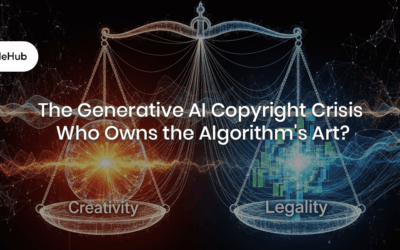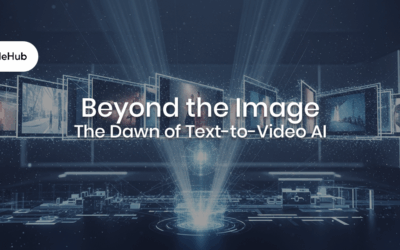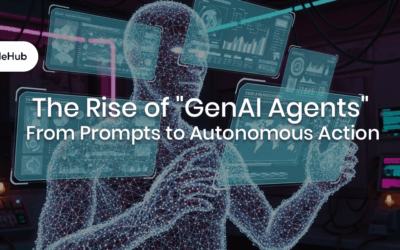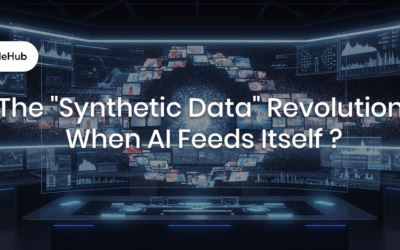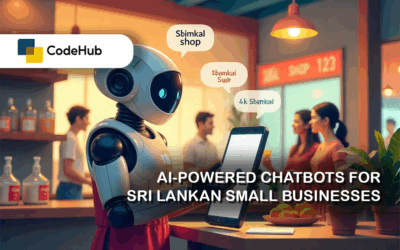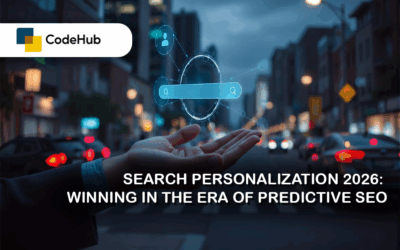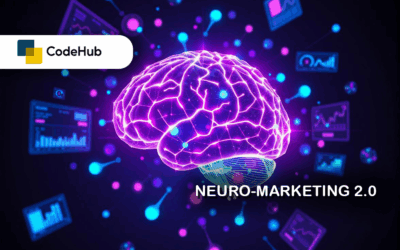Blog
The Generative AI Copyright Crisis: Who Owns theAlgorithm’s Art?
Generative AI models are trained on vast datasets—trillions of words, images, and songs scraped from the internet. Creators argue this is infringement without compensation. Developers argue it’s "fair use"—a transformative process akin to a human artist being inspired...
Audio Deepfakes and the Voice Clone Wars: The Death ofTrust
Advances in voice cloning mean that a hyper-realistic, emotionally complex replica of any voice can be generated from just a few seconds of audio. While this technology enables personalized accessibility and content creation, it has also sparked the Voice Clone Wars....
Web Assembly (Wasm) Hits the Server: The New CloudRuntime
The world's biggest tech players are betting on Web Assembly (Wasm) to replace traditional containers and virtual machines on the server side. Wasm is a compact, sandboxed, binary instruction format, and its unique qualities make it the perfect engine for modern,...
Beyond the Image: The Dawn of Text to Video AI
Creating video from text is exponentially harder than creating an image. The AI must manage spatial consistency (where objects are) and temporal consistency (how things move over time) across hundreds of frames. Until now, this was the generative AI's impossible...
The Rise of “GenAI Agents”: From Prompts to Autonomous Action
We are witnessing a monumental shift: the rise of AI Agents. These are systems that move beyond the static, one-and-done prompt to engage in autonomous action. They don't just generate text or an image; they operate as self-driving digital workers. An AI Agent is...
The Magic Behind the Pixels: How AI Literally Diffuses Your Ideas into Photos?
If you’ve been stunned by the photorealistic images coming out of Midjourney or DALL·E, you're looking at the power of the Diffusion Model. This technology is a massive leap beyond older AI art generators. It doesn't guess; it denoises. Here’s the counter-intuitive...
The “Synthetic Data” Revolution: When AI Feeds Itself?
The engine of AI runs on data, but collecting real-world information is plagued by two issues: scarcity (too few examples of rare events) and sensitivity (too much private information). This is why Synthetic Data—artificially generated information that statistically...
Why Choose Microsoft Fabric for Data Strategy Over Other Platforms?
In today’s digital economy, businesses generate more data than ever before. The challenge is not storing this data but transforming it into actionable insights that drive growth. Among the many analytics platforms available, Microsoft Fabric is quickly emerging as the...
New Product Development Process: A Step-by-Step Guide
Every successful product in the market today began with an idea—but having an idea is not enough. Businesses need a clear and structured new product development (NPD) process to turn concepts into profitable realities. A well-planned NPD process reduces risks, aligns...
Top 20 Agentic AI Project Ideas You Must Build in 2025
Artificial intelligence has already transformed industries, but agentic AI—AI systems that not only think but also act—is taking innovation to the next level. Unlike traditional AI tools that provide suggestions, agentic AI agents can take autonomous actions, making...
Cloud Computing in Oil & Gas: A Guide to Business Opportunities and Challenges
The oil and gas industry has always depended on advanced technology to remain competitive, and today cloud computing is driving the next wave of transformation. Companies are increasingly turning to cloud platforms to handle vast amounts of seismic, geological, and...
Google Ads & Paid Media Strategies in the Age of AI & Privacy
Google Ads remains a dominant force in digital marketing, but the way advertisers approach campaigns is changing. AI now powers smart bidding, automated targeting, and ad creative generation, allowing businesses to scale faster than ever. However, as privacy laws...
Evolving CRM & Privacy + Zero-/First-Party Data
In today’s privacy-first digital landscape, CRMs are evolving to help businesses adapt to stricter data regulations and the phasing out of third-party cookies. The focus is shifting towards zero-party data (information customers willingly share) and first-party data...
Web Development Trends
The world of web development is evolving rapidly. In 2025, trends are shifting towards speed, accessibility, and high performance. Low-code and no-code platforms are democratizing web creation, allowing entrepreneurs and small businesses to launch functional websites...
Generative Engine Optimization (GEO) / Answer Engine Optimization (AEO)
SEO is undergoing one of the most significant shifts since its inception. With the rise of AI-powered search assistants, traditional search engine optimization is expanding into Generative Engine Optimization (GEO) and Answer Engine Optimization (AEO). Unlike...
WordPress vs Shopify: Flexibility vs Ease / Total Cost of Ownership
The WordPress vs Shopify debate continues to dominate eCommerce discussions in 2025. Shopify’s biggest advantage lies in its simplicity—hosting, security, and updates are handled for you. This makes it the perfect option for entrepreneurs who want a quick,...
Generative / AI-Driven Store Builders (Shopify, etc.)
Artificial intelligence is rapidly transforming eCommerce, and one of the most talked-about innovations is AI-driven store builders. Shopify recently launched its AI Store Builder, a tool that allows merchants to generate complete online stores—including layouts,...
Social Media’s Role in SEO Success
Social media may not directly affect rankings, but it plays a huge role in SEO. Every share, like, and comment increases brand visibility and drives traffic to your website. The more people engage with your content, the more signals search engines receive about its...
Why Technical SEO Matters More Than Ever
Many businesses focus only on keywords and content but forget the importance of technical SEO. A slow, unoptimized website can kill your rankings no matter how good your content is. Technical SEO ensures your site is fast, mobile-friendly, and crawlable by search...
The Role of Content in SEO
Content is often called the “heart of SEO,” and for good reason. Search engines prioritize websites that consistently publish valuable, relevant, and keyword-rich content. Whether it’s blogs, product descriptions, or landing pages, well-optimized content attracts both...
SEO vs. SEM: Which Is Right for Your Business?
When businesses think about online marketing, SEO and SEM often come up as two key strategies. But what’s the difference? SEO (Search Engine Optimization) focuses on organic growth—ranking naturally on Google through keywords, content, and backlinks. SEM (Search...
Local SEO: The Secret to Winning Nearby Customers
If your business serves local customers, Local SEO is the game-changer. It ensures your business appears in “near me” searches, Google Maps, and local directories. Whether you run a café, a clinic, or a service business, showing up in local searches drives foot...
Why SEO Is the Backbone of Online Success
Search Engine Optimization (SEO) is no longer optional—it’s the foundation of digital growth. Every day, millions of searches happen on Google, and if your business doesn’t appear, you’re losing potential customers. SEO helps improve visibility, attract organic...
Hybrid Events & Virtual Platforms: Building Digital Experiences
The pandemic accelerated virtual events, but even as in-person gatherings return, hybrid events are here to stay. A hybrid event blends physical and digital participation, offering the best of both worlds—reach, convenience, and engagement. Webinars, online product...
API-First Development: Building Scalable Digital Ecosystems
Modern businesses no longer run on standalone systems—they run on ecosystems. That’s where API-first development comes in. Instead of building apps and then adding APIs later, developers design APIs from the start, ensuring better integration, scalability, and...
Voice Commerce: The Next Frontier for E-commerce in Sri Lanka
The way we shop online is evolving—and the next big leap is voice commerce. With just a simple command, users can search for products, add them to carts, and even complete payments. In countries like the US and UK, voice shopping is already gaining momentum. The...
Voice UI Design: Best Practices for Conversational Apps
Voice technology is no longer a futuristic idea—it’s already part of daily life. From Siri and Alexa to Google Assistant, people are increasingly using voice interfaces for searching, learning, and even controlling smart devices. But building a successful Voice UI...
Building for Accessibility: Designing Inclusive Digital Products
Accessibility in technology is no longer optional—it’s essential. Every digital product, whether it’s a website, app, or platform, should be usable by everyone, including people with disabilities. Accessibility not only ensures fairness but also expands reach,...
Women in Tech: Stories & Opportunities in Sri Lanka
Technology is often seen as a male-dominated field, but in Sri Lanka, women are increasingly breaking barriers and making remarkable contributions to the tech industry. From software engineers and UI/UX designers to digital entrepreneurs, these women are not only...
Choosing Between Multi-Cloud and Hybrid Infrastructure: A Guide for Sri Lankan Enterprises
Cloud computing has become the backbone of modern business, but the question isn’t whether to adopt it—it’s how. Enterprises today face two popular choices: multi-cloud and hybrid infrastructure. While both offer flexibility and resilience, each comes with trade-offs....
Low-Code Automations for Rural SMEs in Sri Lanka
Small and medium enterprises (SMEs) form the backbone of Sri Lanka’s economy, especially in rural regions where innovation often emerges out of necessity. Yet, many SMEs still struggle with outdated processes—manual record keeping, delayed communications, and...
Building Accessible Web Apps: Best Practices for Inclusivity in Sri Lanka
The internet was built to connect people, yet too many websites and apps unintentionally exclude users with disabilities. For a diverse nation like Sri Lanka, where millions of people may face visual, auditory, or mobility challenges, building accessible digital...
AI-Powered Chatbots for Sri Lankan Small Businesses
In today’s digital-first world, customer expectations are sky-high. People want instant answers, 24/7 support, and a personalized experience—all without waiting in line or being put on hold. For small businesses in Sri Lanka, from clothing boutiques in Galle to food...
Demystifying DevOps for Sri Lankan Startups
For startups, speed is everything. Launching quickly, iterating often, and delivering a reliable product to market can make or break a business. This is where DevOps comes in—not as a complicated buzzword, but as a culture of collaboration and automation that bridges...
From Web3 to Real-World Use Cases: Blockchain Solutions for Sri Lankan Industries
Web3 is no longer just a buzzword floating in the global tech conversation; it’s steadily evolving into practical solutions that solve real-world problems. While cryptocurrencies and NFTs grab the headlines, the underlying blockchain technology is quietly transforming...
The Role of ICT in Space Economy: Satellite Internet & Beyond
The space economy is one of the fastest-growing sectors globally, and ICT is at the heart of this transformation. By 2026, satellite internet, AI-powered spacecraft, and global connectivity will redefine how businesses, governments, and individuals interact with space...
ICT in Education 2026: AI Tutors, AR Classrooms, and Global Access
The education sector is being transformed by ICT. By 2026, classrooms are becoming AI-powered, AR-enhanced, and globally accessible, offering personalized and immersive learning experiences. AI tutors provide individualized guidance, adapting lessons to each student’s...
From Social Media to Social AI: How Virtual Influencers Will Dominate by 2026
The world of digital marketing is shifting from traditional human influencers to AI-generated virtual influencers. By 2026, many top social media “personalities” will not be real people, but highly sophisticated AI characters with large followings. These virtual...
Search Personalization 2026: Winning in the Era of Predictive SEO
Search engines are becoming predictive, personalized, and highly intelligent. By 2026, every user sees search results tailored specifically to their behavior, preferences, and context. Instead of searching generically for “best smartphone 2026,” predictive search...
Neuro-Marketing 2.0: Using Brainwave Data for Personalized Ads
Marketing has always relied on understanding human psychology. Colors, words, and imagery are designed to trigger emotions and influence purchasing decisions. By 2026, this approach has evolved into Neuro-Marketing 2.0, which uses brainwave data, biometrics, and AI to...

